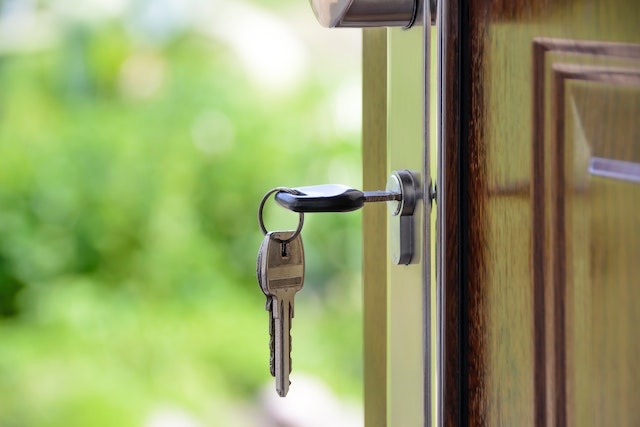As the world becomes more aware of climate change and environmental issues, it’s important to consider how real estate investment can impact sustainability. From reducing energy consumption to minimizing waste and improving air quality, there are countless ways that sustainable practices can benefit both investors and the planet. In this blog post, we’ll explore why environmental sustainability should be a key factor in your next real estate investment decision – after all, going green isn’t just good for the environment, it’s smart business too!
The Cost of Environmental Damage
Environmental sustainability is a critical consideration in real estate investment. In order to make sound decisions when investing in property, it is important to understand the cost of environmental damage. Environmental damage can come in a variety of forms, including water pollution, air pollution, and land degradation. All three of these types of damage have economic implications.
Water pollution can cause fish populations to decline, leading to lower seafood prices and job losses. Pollution from factories can create toxic compounds that end up in rivers and lakes, adversely affecting aquatic life. Air pollution can cause health problems such as heart disease and asthma, as well as decreased crop yields. Land degradation can reduce the value of properties by reducing their amenities or increasing their susceptibility to flooding or landslides.
Each type of environmental damage has its own set of costs associated with it. The total cost of environmental damage can be significant, both for businesses and for individuals. By understanding the cost of environmental damage, investors can make smarter decisions about where to put their money.
The Relationship Between Environmental Sustainability and Real Estate Investment
Real estate investors and brokers should always be mindful of the impact their investments have on the environment. Environmental sustainability is a growing concern for many people, and it is also an important consideration when making real estate investments.
There are a number of ways to make sure your investment portfolio reflects environmental sustainability concerns. For example, you can:
-Invest in properties that use energy efficiently.
-Select apartments or homes with green features, such as solar panels or rain gardens.
-Look for developments that have implemented sustainable practices, like LEED certification.
In addition, be sure to ask the real estate agent about any environmental considerations when you are shopping for a property. You may also want to research specific environmental concerns in your area, and consult with an environmental consultant if you’re unsure how to address them.
The Importance of Green Building Standards in Real Estate Investment
When it comes to real estate investment, sustainability is key. Not only does sustainable real estate produce positive environmental effects, but it can also be a profitable investment. To make sure your decisions reflect this important consideration, you should consider green building standards when investing in a property.
One way to achieve high environmental standards is through LEED certification. This program was developed by the United States Green Building Council (USGBC) and offers an international standard for environmentally responsible construction. As of 2019, there are over 6,000 projects worldwide that have achieved LEED certification.
While LEED certification isn’t the only way to ensure sustainability in your real estate investments, it is one of the most reputable and recognized. Other green building standards include the Living Building Challenge (LBC), which sets higher goals for energy efficiency and water use; and the ENERGY STAR program, which rewards buildings with lower emissions levels.
When choosing a property for your investment portfolio, be sure to research all available options and choose those that meet your specific needs and values. By following green building standards when making your purchase or rental decisions, you’ll help promote environmental responsibility while also benefiting from increased profits and long-term stability in your portfolio.[/vc_column_text][/vc_row][vc_row full_width=”stretch_row” css=”.vc_custom_1474727479663{padding-top:
The Impact of Climate Change on Real Estate Investment
The adverse effects of climate change are already being felt by the real estate industry, with more extreme weather conditions causing disruptions to home sales and construction, as well as increasing insurance premiums. The impact of climate change on real estate investment will only become more pronounced in the coming years, as melting glaciers and rising sea levels flood coastal areas, damage infrastructure, and heighten risks associated with natural disasters.
Given this reality, it is important for real estate investors to consider their own exposure to climate change risks and take action to reduce their own exposure. There are a number of strategies that can be employed to achieve this goal, including:
1. Evaluate your property portfolio for potential climate-related liabilities. For example, residential properties situated near bodies of water that may experience increased flooding due to higher levels of water inundation from storms or rising sea levels are at greater risk from storm damage or loss due to flooding. Likewise, properties in regions prone to severe weather events (e.g., hurricanes) may experience costly repairs after a storm. In addition, firms that specialize in environmental analysis can provide a detailed assessment of your property portfolio for potential environmental liabilities such as toxic contamination or groundwater depletion from improper land management practices.
2. Review your real estate lending policies and procedures for references related to climate-sensitive matters such as coastal erosion or zoning changes that could impact your property value. While lenders typically do not require lenders to disclose specific information about the characteristics of their borrowers’ properties (
Conclusion
When it comes to real estate investment, it is important to consider the impact your choices have on both the environment and future generations. By making thoughtful decisions about where and how you invest, you can help create a more sustainable future for all of us. Hopefully this article has given you some insights into the importance of environmental sustainability and encouraged you to think about how your choices affect the world around us. If you have any questions or would like advice on finding responsible real estate investments, please don’t hesitate to contact us!










